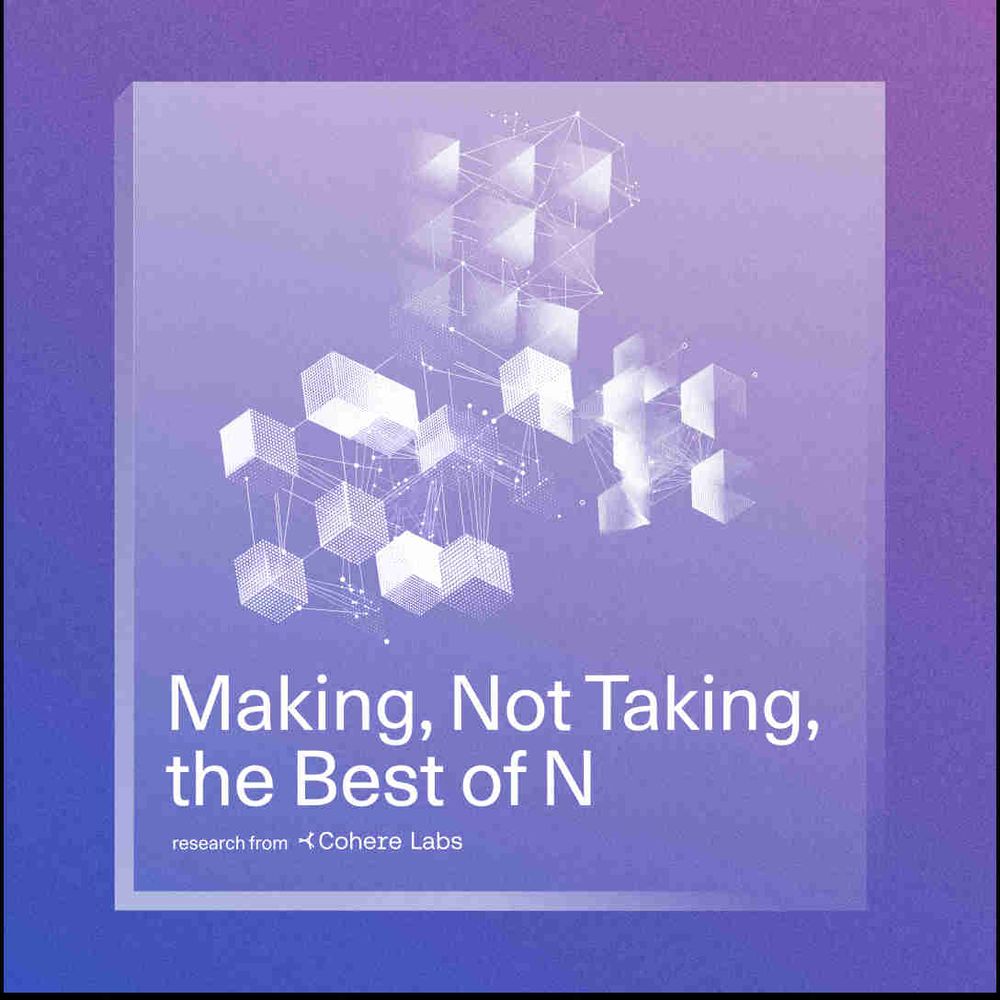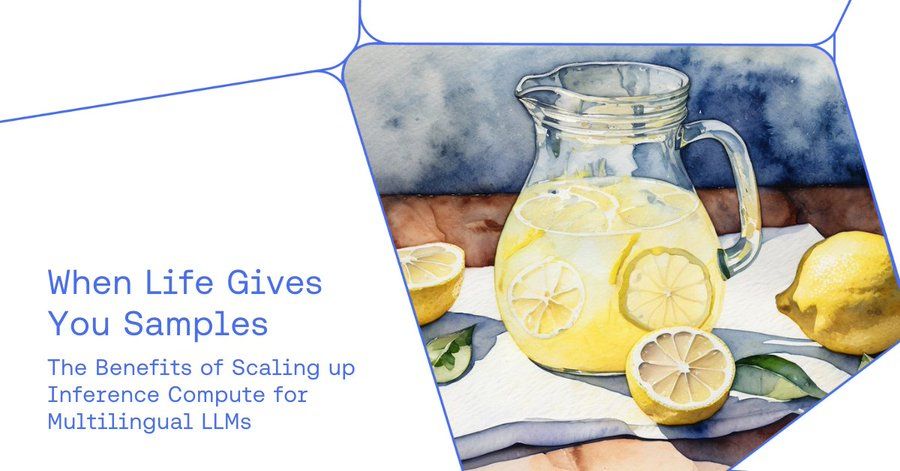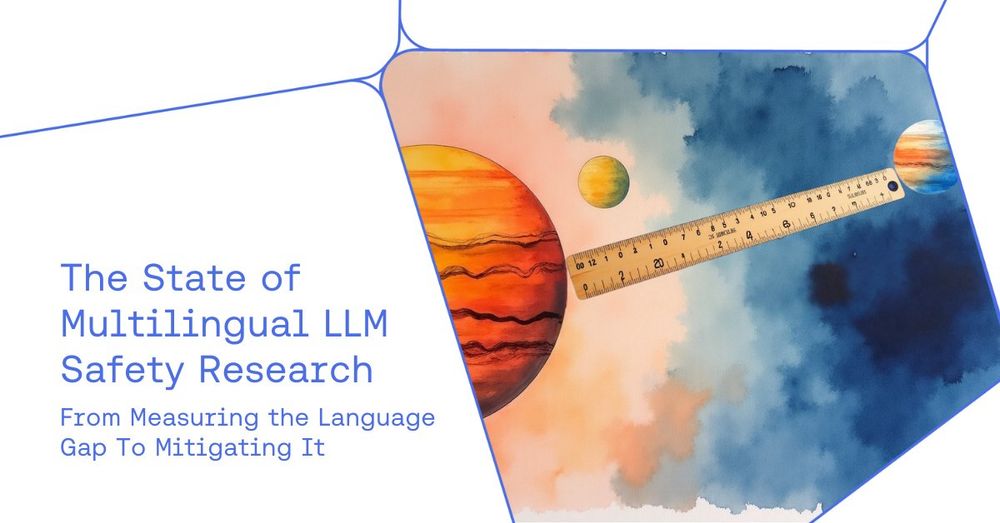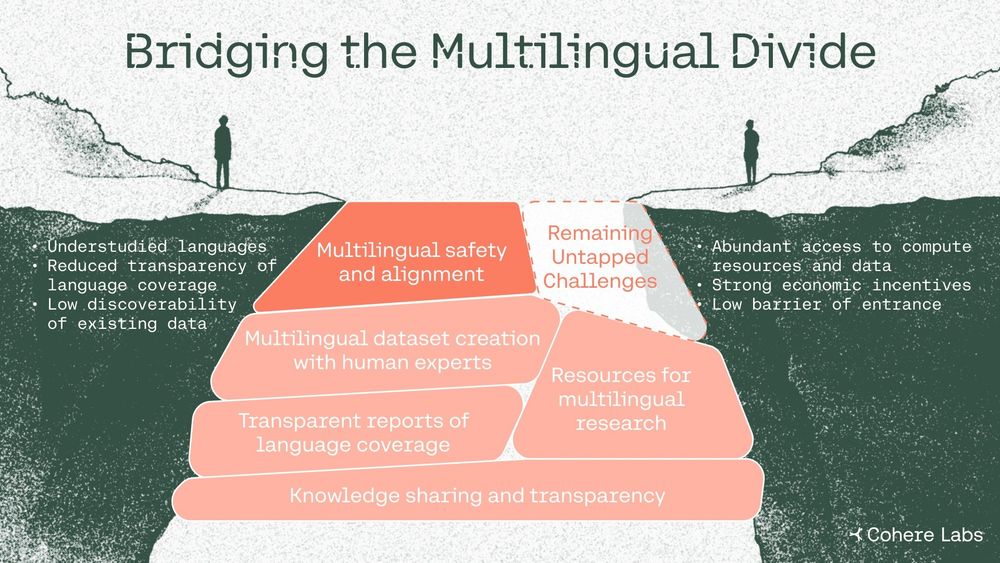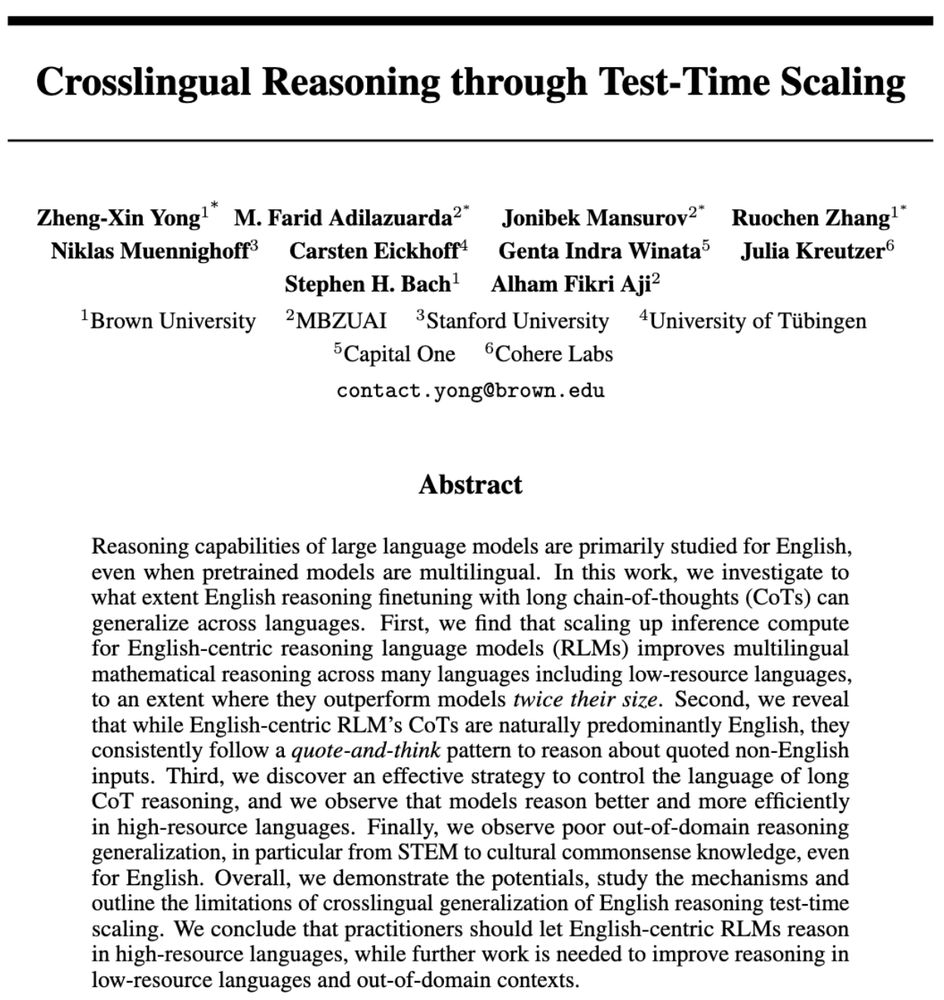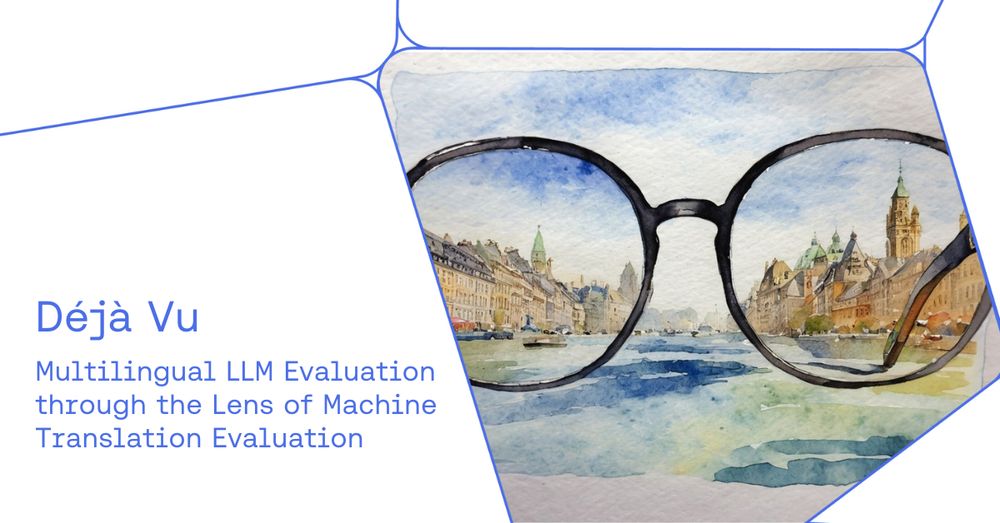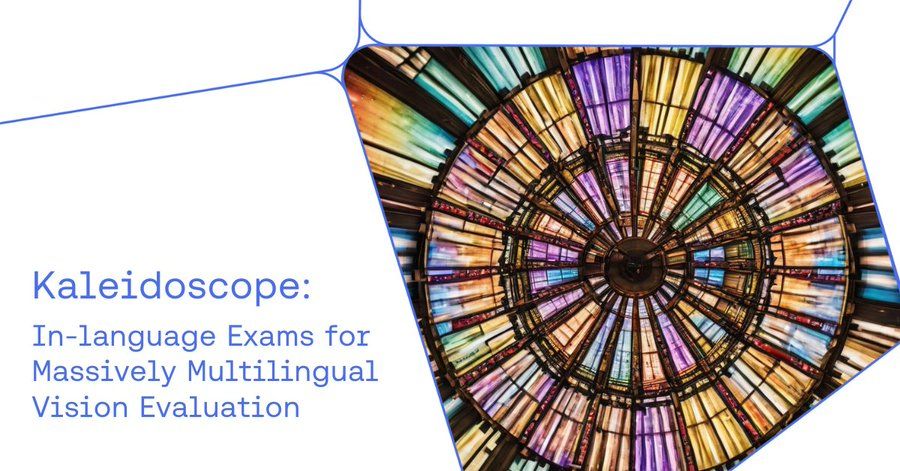Julia Kreutzer
@juliakreutzer.bsky.social
160 followers
170 following
20 posts
NLP & ML research @cohereforai.bsky.social
Posts
Media
Videos
Starter Packs
Reposted by Julia Kreutzer
Reposted by Julia Kreutzer
Reposted by Julia Kreutzer
Julia Kreutzer
@juliakreutzer.bsky.social
· Jun 26
Julia Kreutzer
@juliakreutzer.bsky.social
· May 28
Reposted by Julia Kreutzer
Julia Kreutzer
@juliakreutzer.bsky.social
· Apr 24
Reposted by Julia Kreutzer
Julia Kreutzer
@juliakreutzer.bsky.social
· Apr 17
Julia Kreutzer
@juliakreutzer.bsky.social
· Apr 17
Reposted by Julia Kreutzer
Reposted by Julia Kreutzer
Tom Kocmi
@kocmitom.bsky.social
· Mar 28


